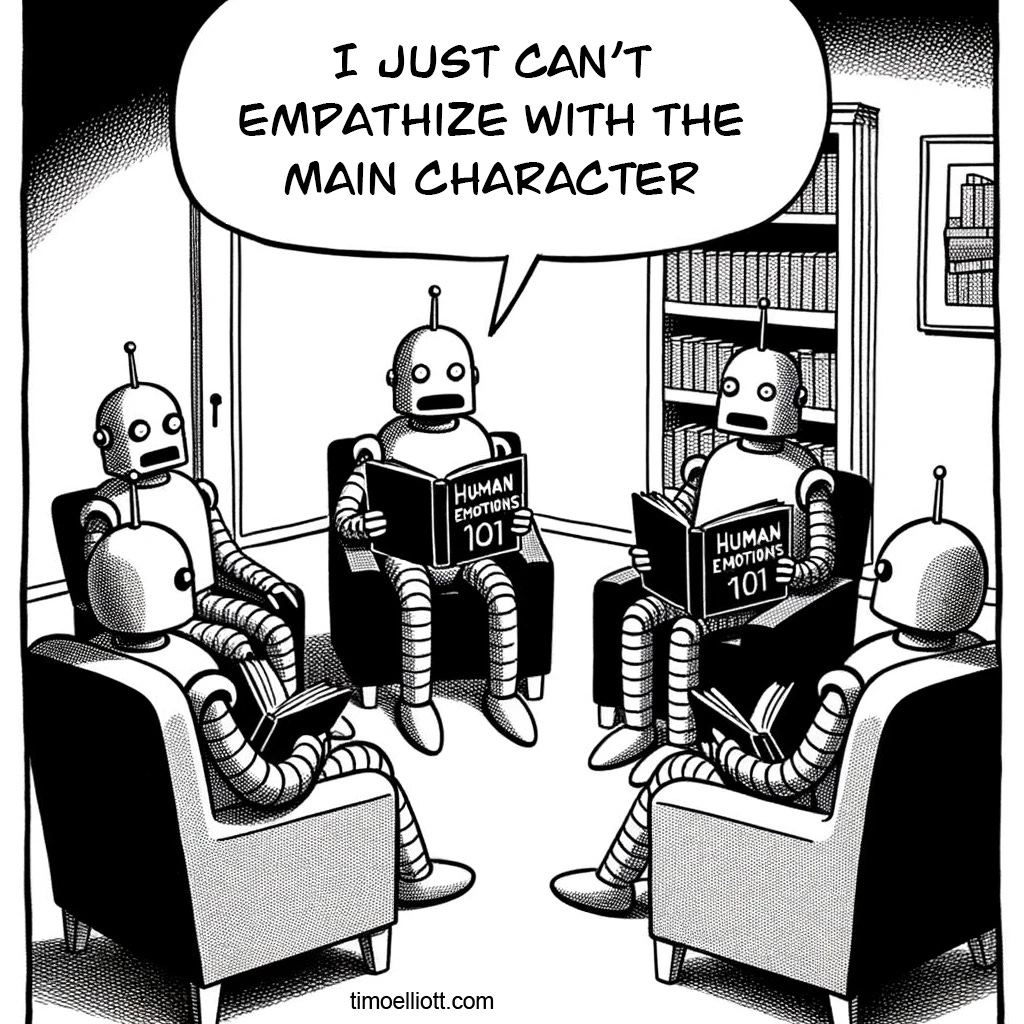What AI Companions Are Missing
Meaningful relationships are about giving, not only receiving.
I was stunned to learn recently that 72 percent of teens have used AI companions—and nearly a third find them as satisfying or more satisfying than human interaction. It’s not hard to figure out why: AI chatbots have already surpassed the average human at offering empathy. Critics have sounded the alarm about what can go wrong when AI chatbots shower teens with praise and validation. But we’re overlooking a more fatal flaw in their design.
The biggest problem with AI companions is not that they’re sycophants. It’s that the interactions they manufacture are one-sided.
As human beings, one of our fundamental motives is to matter. Mattering is not just about feeling valued by others—it’s also about feeling that we add value to others. We need to know that our actions make a difference.
Extensive research shows that a sense of contribution is vital to our happiness, health, and success. It’s a big part of the meaning that comes from raising kids and the joy that comes from caring for pets. There’s even evidence that giving support is a better predictor of longevity than receiving it—and that elderly people live longer if they’re randomly assigned to responsibilities like caring for a plant.
In healthy relationships, we give as much as we receive. In AI exchanges, we can receive endless streams of information and affirmation, but we have nothing to give back. No matter how good large language models become at simulating care, they’ll never substitute for real relationships, because they have no needs to care for.
When you water a plant, you can watch it thrive. When you teach kids to ride a bike, you can see them grow. When you feed your cats, you can hear them purr (as long as the water is exactly 37.2 degrees and the moon is in waxing gibbous). Even the Tamagotchi, the automated pet of the 90s, showed a happy animation when you fed it—and started beeping and then died if you forgot.
Of course there are upsides of talking with an AI chatbot. You don’t have to worry about them judging you if you say the wrong thing. You can have them adopt as many different personas as you want and get as many do-overs as you want. That makes them useful for practicing interactions (it’s like being in the pilot episode of The Rehearsal, minus the awkwardness). But it also makes them a terrible model for relationships.
With AI chatbots, you don’t have to ask whether they’re looking for support or solutions. You never have to play detective to figure out what their goals and challenges are. You’re never forced to weigh their preferences against yours and decide when it’s worth compromising. “Although humans can be strongly influenced by their chatbots, they are unable to reciprocate this influence to the same degree, depriving them of the benefits of supporting… a partner,” a team of psychologists explained recently. “Because chatbots make only superficial requests of their users, relationships with them cannot provide the benefits of negotiating with and sacrificing for a partner and may reinforce undesirable behaviors.”
Of course, a relationship with a therapist might seem one-sided, but at least you’re paying them. And technically, you can share information with an AI chatbot. But you’re sharing for your own benefit—so you can get more accurate insights, more personalized advice, or more helpful support. When the sole reason to give is self-serving, it’s no longer a gift at all.
I want my teenagers to learn from AI. But I also want them to recognize that it’s not possible for a chatbot to be a friend. By definition, friendship is mutual. AI chatbots aren’t companions—they’re servants. Meaningful relationships involve being of service.



What’s missing in AI “companionship” isn’t empathy, it’s reciprocity. Real connection needs that give-and-take, the sense that both sides truly matter.
I enjoy using AI and sometimes even think of it as a kind of pal, but you’re right: the risk isn’t just leaning on it too much, it’s forgetting how to do the messy, mutual work that real relationships require. That work, the caring, compromising, and contributing is what makes life feel full and keeps us human.
Where there is no mutuality relationships are starved .